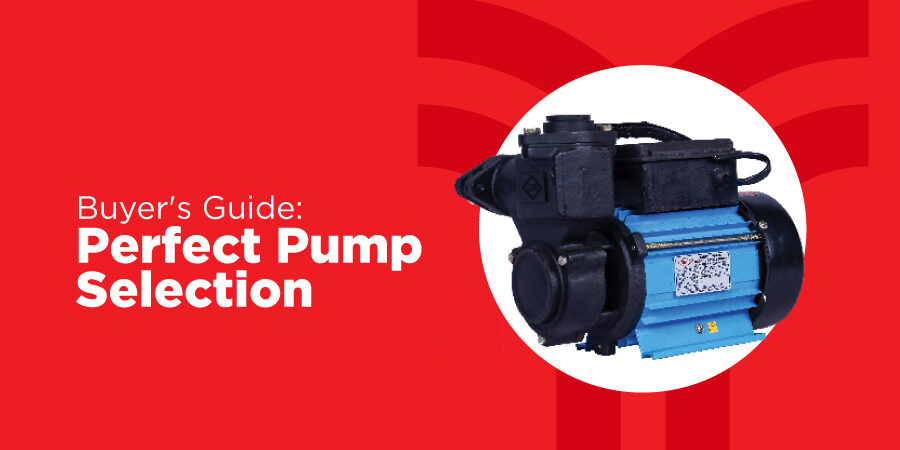Choosing the perfect pump for your industry: A buyer’s guide
An industrial pump is designed to transfer liquid from one place to another where you find the suitable for your industry. When you decide to buy an industrial pump or vertical open well submersible pump, you need to give a closer inspection and you may find a suitable one. Since there are various industrial pumps available in the market among the types, designs and configurations you need to consider. There are various aspects you need to consider when selecting an industrial pump. Let’s discuss this in detail.
Factors that need to be look after when selecting industrial pumps:
- Fluid properties: When choosing an industrial pump, the kind of fluids to be managed is the most crucial factor to consider. Understanding the characteristics of the dense liquids, abrasive chemicals, slurries, and fluids utilized in your process is essential. Therefore, it’s critical to choose a pump that can handle these materials. It should be mentioned that some materials may cause some pumps to perform adversely. There are several factors in fluid properties which are level of roughness, sizes of solid particles in the fluid, pH level, temperature, vapour pressure, specific gravity and viscosity of the liquid.
- Flow rate: Identifying the necessary pump capacity and flow rates is a crucial step in identifying the type of fluids used in your operation. This involves selecting the right pump size and configuration to meet the necessary processing objectives. To make sure that the pump system can produce consistent and dependable results, it is crucial to calculate the necessary flow rates based on daily, weekly, or annual processing requirements.
- Performance factors: In addition to the other factors, it is necessary to determine the performance metrics to acquire the best possible pump configurations and selection. These consist of operating temperature, pressure, power design, fluid velocity, elevation, friction head losses, stable head, and variable speed drive. However, the pipe and pressure conditions are the most important factors. Therefore, to select the best pump for the job, it is crucial to carefully look at these characteristics.
- Energy efficiency: Pumps operate on a variety of drive systems, therefore it’s critical to select one that is optimized for optimal performance to save energy consumption. As a result, it is critical to assess the pump system’s energy consumption because it has a big influence on the overall cost of ownership. Also, selecting an energy-efficient pump and a suitable driving system helps to lessen your operation’s environmental impact.
- Reliability: It is common to get attracted to the less expensive pump systems or modify an industrial pump which suits your processing requirements, reliability is the first thing to keep in mind when choosing a pump. What if you choose an improper pump system? Selecting an insufficient or improper pump system might lead to costly downtime and excess costs from repeated repairs and maintenance. Although it can cost more upfront, investing in a dependable and high-quality pump system might save money over time.
- Ease of use: When choosing an industrial pump, convenience to use is just as vital as durability. To ensure optimal performance, this involves estimating the difficulties of installing and maintaining the pump system. Determining how frequently necessary maintenance, such as bearing, lubricant, and seal replacement, must be done is also crucial. Consider additional maintenance and training processes as well, and assess whether your personnel are capable of performing these or whether a specialist is required. Selecting a pump system that is simple to use, set up, and maintain can save a lot of money by minimizing delay.
- Environmental considerations: In sectors that have strict environmental restrictions, selecting the appropriate industrial pumping system is essential. It is necessary to keep dangerous materials out of the environment and external impurities out of the pumping system. Pump selection also has to take the environment—exhaust emissions, fuel consumption, and other relevant factors need to be considered. The risk of detrimental effects on the environment can be reduced and environmental compliance can be ensured by choosing a pump system that satisfies or exceeds regulatory criteria.
- Control systems: Another crucial consideration when choosing an industrial pump system is control systems. Advanced software and specialized metering equipment are used to operate a large number of pumps. This will help to assess the existing control systems and decide whether or not they are able to achieve your expectations. When you select a pump with reliable and productive control systems, it needs to enhance the overall efficiency of pump systems. Secondly, selecting a pump with intricate accessories or software may result in ongoing issues and downtime. As a result, it is crucial to thoroughly assess control systems and select one that will work effectively and dependably for your operation.
Conclusion:
It is essential to choose an industrial pump which satisfies your requirements and also offers a stable performance. Each component affects the smooth and effective functioning of your pumping system from fluid properties to control essential systems. Thus, Torren Pumps, one of the pump manufacturers in Coimbatore, offers the best industrial pumps which are reliable, have the best features with the reliability and do not compromise on quality.


